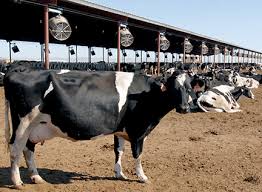Farmers hail scrapping of VAT on live animal sales
LIVESTOCK farmers have hailed the Government’s recent decision to scrap the 15 percent value-added tax (VAT) on live animal sales, saying the move is a significant step towards promoting organised marketing and enhancing disposable incomes.
By removing VAT, the Government aims to alleviate the financial burden on livestock farmers, encouraging more efficient and profitable farming practices. The decision is expected to benefit farmers by increasing their revenue and supporting the growth of the livestock sector.
Farmers expressed optimism that this tax relief would lead to better-organised markets and improved profitability, ultimately contributing to the overall development of the agricultural sector. Presenting the 2024 mid-term budget policy review last week, Finance, Economic Development and Investment Promotion Minister, Professor Mthuli Ncube said the Government noted that 85 percent of live animals were sourced from smallholder farmers, most of whom are ineligible for VAT registration, which means that the tax had no economic benefit to the country.
He further observed that due to the El Nino-induced drought there had also been a decline in demand for livestock products. Prominent farmer, Mr Obert Chinhamo of Biano Simmentals in Esigodini said they have been lobbying the Government through various platforms to remove VAT, arguing that it pushed downward the prices of livestock since it was effected in January.
“It is a very good move and as farmers we had been lobbying through various platforms to have the VAT issue reversed and we are grateful to the listening ears. The buyers obviously with added VAT were pushing the cost to farmers and so, to a farmer, it meant we were paid a lower rate by 15 percent or more,” he said.
“So, if we retain the US$0,15 per dollar it means a significant amount is coming to the farmer.”
Prof Ncube has proposed the exemption of VAT on the sale of live animals to restore demand for meat while at the same time promoting formal trade in the livestock sector.
During the 2024 National Budget presentation late last year, Minister Ncube announced that standard VAT increased to 15 percent from 14,5 percent effective January 1, 2024. This prompted an increase in the prices of meat products.
Mr Chinhamo said the whole value chain from farmers to meat possessors was affected by the introduction of VAT, which forced all the players to utilise different platforms, lobbying for the reversal of the VAT issue.
“We have the beef producer’s society, Livestock and Meat Advisory Council (LMAC) and farmers unions. All have been actively lobbying on behalf of farmers,” said Mr Chinhamo. —chronicle








